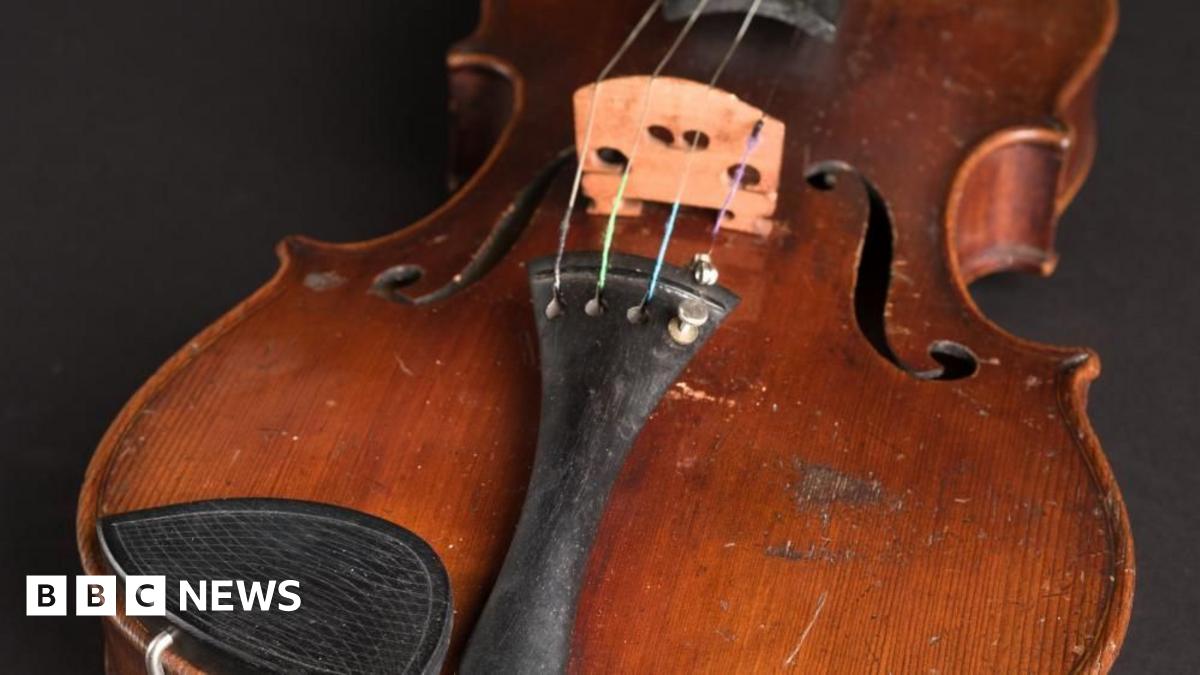Dr Wingfield spent six months researching Einstein’s musical interests, collecting everything the physicist had written or said about music.
The drama premiered in Highgate, north London, in April and became a tribute to Mr Schwartz.
“I dedicated the show to him because I wrote it for him, really, in retrospect,” he said, “He would have absolutely loved it.”
But after one performance, Dr Wingfield received a message from an auctioneer which began with, “I’m not mad…” and asked for help verifying a violin that could have belonged to Einstein.
“I had a gut reaction when I first held it that it was genuine,” he told the BBC.
“But that just makes me even more suspicious. So I had to go and look at all the documents, all the letters, scrutinise the violin and find details just to get every single element to make sure I thought it was his.”
It had the inscription “Lina” – a name Einstein gave to all his violins.
“He was 15 when he got this violin. That’s the sort of thing an adolescent might do, I suppose,” Dr Wingfield said.
He even compared the inscription to Einstein’s school-age handwriting and found a match.
One of the most striking details was the violin’s slightly longer body.
“It would need somebody with quite a big left hand, which does all of the fingering on the strings, to be comfortable playing it,” he added.
“Then I found X-rays and graphs of Einstein’s hands, and his left hand was indeed bigger than his right. That was quite an exciting discovery.”

